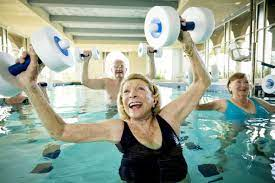Exercise in older age can help to reduce the severity of some of the most common aging diseases, such as coronary artery disease, osteoporosis, rheumatoid arthritis, and Alzheimer’s disease. Exercise can also prevent or slow the progression of diabetes, which is a condition that affects the brain, resulting in poor memory, inability to focus, and poor judgment. While these diseases are usually caused by years of neglect and abuse, poor diet and sedentary lifestyles, they can also be the result of lack of exercise. Exercise can reduce the occurrence and severity of these conditions in a number of ways, including increased blood flow to the brain, stimulation of muscles, weight loss, and decreased blood pressure.
Exercise also produces significant psychological benefits, such as reduced stress and better mood. Improved health can also increase your sense of personal worth and confidence. Finally, exercise in older age can improve your level of functional independence. Older adults who have reduced mobility may require more assistance with daily tasks and may not be able to carry out simple tasks on their own. Regular exercise can help you improve your level of functional independence and reduce the difficulties encountered when you cannot move around freely.
As you can see, exercise training can have tremendous health benefits for people of all ages. As a general rule, the elderly are at an especially high risk of developing many of the chronic and serious conditions associated with old age.It is important that if you move into a bungalow or single storey home like the Park Homes from Park Home Life that you continue to try and be as active as possible.



